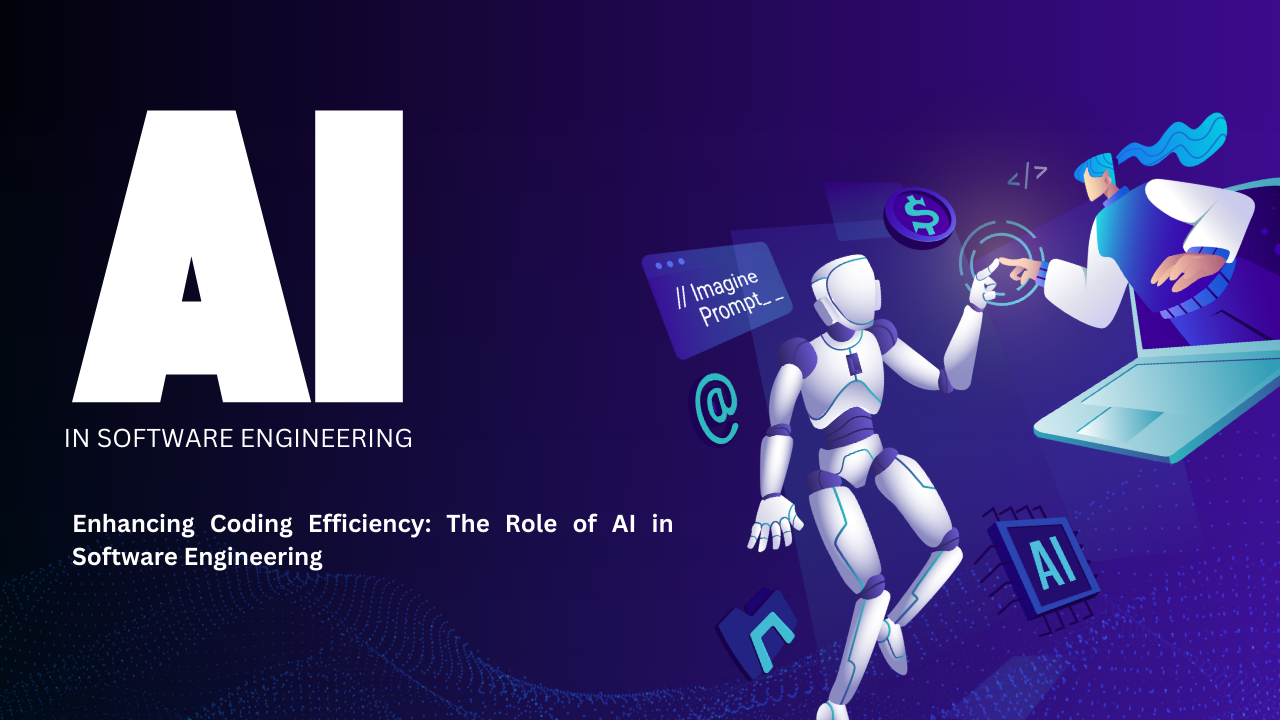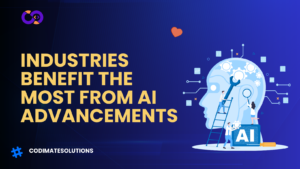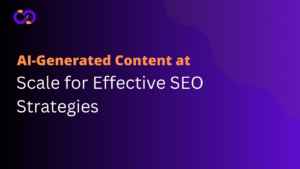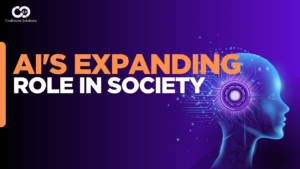- Introduction to AI in Software Engineering
- AI-Driven Coding Assistants: A New Era of Efficiency
- The Future of Bug Detection with AI
- Generating Unit Tests with AI: Streamlining Quality Assurance
- Code Translation: Bridging Programming Languages with AI
- Optimizing Development Workflows with AI
- Case Studies of AI in Action
- The Future Landscape: AI and Software Engineering
Introduction to AI in Software Engineering
Artificial intelligence (AI) is increasingly becoming a pivotal component in the realm of software engineering, revolutionizing the way projects are conceptualized, developed, and maintained. By leveraging AI technologies, software engineers can enhance coding efficiency, improve code quality, and streamline project workflows. This transformative impact is rooted in AI’s ability to analyze large volumes of data, learn from patterns, and make intelligent decisions that humans can then act upon.
One of the most significant contributions of AI in software engineering is its capacity to automate repetitive and time-consuming tasks. Activities such as code generation, bug detection, and code review, which traditionally require substantial human effort, can now be conducted swiftly and accurately by AI-driven tools. This not only accelerates the development process but also minimizes human error, resulting in robust and reliable software products.
Furthermore, AI-powered systems offer smart suggestions and predictive models that assist engineers in decision-making processes. For instance, intelligent Integrated Development Environments (IDEs) can anticipate the developer’s intentions, propose contextually relevant code completions, and even predict potential issues before they materialize. These advanced features contribute significantly to enhancing productivity and code maintainability.
AI’s impact extends beyond mere automation; it fosters innovation within software engineering by facilitating more advanced methodologies such as Machine Learning (ML) and Natural Language Processing (NLP). These technologies enable engineers to develop sophisticated algorithms and applications that can learn, adapt, and evolve over time, thereby pushing the boundaries of what is possible in software development.
As we delve deeper into the specifics of how AI tools and applications are optimizing coding efficiency, it becomes evident that the integration of AI into software engineering is not just a passing trend but a fundamental shift poised to redefine the industry’s future. Understanding this dynamic interplay between AI and software engineering sets the stage for a detailed exploration of the various AI-driven innovations that are currently reshaping the field.
AI-Driven Coding Assistants: A New Era of Efficiency
In the realm of software engineering, AI-driven coding assistants have ushered in a transformative era, fundamentally altering the methodology behind code writing and debugging. Modern tools such as GitHub Copilot exemplify this technological advancement, providing software developers with sophisticated means to enhance their coding efficiency significantly.
Essentially, AI-driven coding assistants operate by leveraging advanced machine learning algorithms and vast datasets of code repositories. By doing so, they can predict and auto-complete lines of code as developers type, recognize patterns, suggest best practices, and even identify potential bugs in real-time. These tools are trained on extensive libraries of coding examples and can intuitively understand the context of the codebase, allowing them to make relevant and accurate suggestions seamlessly.
The practical benefits of these AI-driven assistants are profound. One of the most immediate advantages is the reduction of time spent on repetitive and mundane tasks. By automating routine coding activities, developers can focus their efforts on more complex and creative aspects of software development. This shift not only accelerates the coding process but also significantly minimizes the probability of human error, thereby enhancing the overall quality of the code.
Furthermore, AI-driven coding assistants facilitate a more efficient debugging process. By continuously monitoring the code in progress, these tools can highlight potential issues and provide solutions before they escalate into significant problems. This proactive approach to debugging not only saves time but also ensures that the code maintains a high standard of functionality and reliability.
The role of AI-driven coding assistants in modern software development is undeniably transformative. By streamlining various aspects of the coding process and reducing the cognitive load on developers, these tools bolster productivity and foster a more dynamic and innovative coding environment. As AI technology continues to advance, it is poised to further revolutionize the landscape of software engineering, driving efficiency and innovation to unprecedented heights.
The Future of Bug Detection with AI
Artificial intelligence (AI) is significantly revolutionizing the domain of bug detection and debugging in software engineering. Traditional methods of identifying code anomalies and debugging often involve extensive manual effort and are susceptible to human error, necessitating substantial time investment from developers. However, AI-driven tools are beginning to change this narrative by providing more efficient, accurate, and faster solutions for detecting and correcting bugs.
AI tools employ various advanced techniques such as machine learning, neural networks, and natural language processing to analyze codebases and identify potential errors that may not be immediately evident to the human eye. These AI technologies excel at recognizing patterns within the code, predicting possible bug locations based on historical data, and even suggesting remedies based on previously solved issues. This predictive capability significantly reduces the time developers spend on mundane bug-tracking tasks, allowing them to focus on crafting more complex and valuable features within the software.
One of the prominent AI tools enhancing bug detection is DeepCode, which functions like a ‘code spellchecker.’ DeepCode leverages a vast repository of coding fixes and best practices to review and identify bugs, offering suggestions in real-time. Similarly, PyLint and SonarQube, although not purely AI-based, have started integrating machine learning algorithms to refine their efficacy in spotting bugs and suggesting optimizations.
Furthermore, AI-powered platforms such as Snyk and CodeGuru provide developers with extensive code reviews, pinpointing security vulnerabilities, code quality issues, and other potential risks, which are often overlooked during traditional debugging processes. By automating the preliminary stages of bug detection, these AI tools minimize the manual overhead, enabling developers to maintain cleaner, more robust, and secure codebases.
In essence, AI is not merely a supportive tool in bug detection but a transformative agent, reshaping how developers approach error identification and resolution. As these AI mechanisms continue to evolve, their integration into software engineering practices signifies a future where the burden of bug detection will be greatly alleviated, leading to enhanced coding efficiency and productivity.
Generating Unit Tests with AI: Streamlining Quality Assurance
In the realm of software engineering, the generation of unit tests is a crucial aspect of maintaining code quality and robustness. Traditionally, developers spend a significant proportion of their time writing and running these tests to ensure that each unit of the software performs as expected. However, with the advent of artificial intelligence (AI), the landscape of unit testing is undergoing a transformative change.
AI algorithms are now capable of automatically generating and executing unit tests, thereby significantly enhancing coding efficiency. These algorithms analyze the code to identify various test scenarios, then create the corresponding unit tests without human intervention. This not only ensures extensive test coverage but also reduces the likelihood of human error, which is a common challenge in manually written tests.
One of the key advantages of AI-generated unit tests is their ability to continuously evolve with the codebase. As code changes over time, AI can dynamically update the unit tests to accommodate new functionalities and modifications. This adaptability is particularly beneficial in agile development environments, where continuous integration and continuous deployment (CI/CD) practices are prevalent. AI-generated tests can keep pace with rapid development cycles, ensuring that testing remains up-to-date and effective.
Moreover, AI-driven testing tools provide developers with detailed insights into the test results, highlighting potential areas of improvement. This feedback loop is instrumental in refining code quality and identifying vulnerabilities early in the development process. For instance, machine learning algorithms can detect patterns in failing tests and suggest specific areas of the code that may require attention, thus aiding in proactive quality assurance.
In summary, the integration of AI in generating unit tests represents a significant leap forward in the software engineering domain. By automating a traditionally manual and error-prone process, AI not only enhances test coverage and accuracy but also contributes to the overall robustness and maintainability of the codebase. As AI continues to evolve, its role in software quality assurance is poised to expand, bringing greater efficiency and reliability to the development lifecycle.
Code Translation: Bridging Programming Languages with AI
Artificial Intelligence (AI) has emerged as a powerful tool in the realm of software engineering, particularly in the translation of code from one programming language to another. This capability, often referred to as code translation or code transposition, leverages advanced algorithms and machine learning models to accurately convert syntax and logic across different programming paradigms.
Core to this innovation are techniques like neural machine translation and natural language processing. These technologies analyze vast amounts of source and target language data, learning the nuanced rules and exceptions inherent to each programming language. This method not only ensures high fidelity during translation but also maintains the semantic integrity of the original code.
The accuracy of these translations has seen significant improvements thanks to ongoing advancements in AI. For example, the use of attention mechanisms in machine learning models enables the translation system to focus on essential parts of the code, ensuring that complex constructs are accurately mapped from one language to another. This precision is crucial in preserving the functional intent of the code, minimizing the risk of errors or unintended behavior in the translated version.
Real-world applications of AI-driven code translation are vast and varied. One notable benefit is the facilitation of more flexible technology stacks. Organizations can leverage existing codebases by translating them to more modern or suitable languages without undergoing a complete rewrite. This flexibility can lead to significant time and cost savings, allowing companies to swiftly adapt to new technological requirements.
Another significant advantage lies in reducing the learning curve for developers. With AI-assisted translation tools, developers can work in their preferred programming language while still being able to import libraries and modules written in different languages. This capability can streamline collaboration and enhance overall productivity within development teams.
In essence, AI-driven code translation is not just about converting syntax; it is about bridging the gaps between different programming ecosystems, promoting efficiency, and fostering innovation within the software development industry.
Optimizing Development Workflows with AI
Advancements in artificial intelligence (AI) are not only transforming coding practices but also significantly enhancing various aspects of software development workflows. Technologies powered by AI have brought about sweeping improvements in project management, version control, and numerous other non-coding dimensions integral to software engineering.
AI-driven project management tools are revolutionizing how teams organize, track, and execute their projects. Traditional project management methods often struggle with the sheer complexity and dynamism of modern software projects. Conversely, AI applications can analyze historical project data, predict potential roadblocks, and suggest resource allocations for optimal throughput. By leveraging machine learning algorithms, these tools can offer real-time insights and facilitate better decision-making, ensuring that projects are completed within deadlines and budgets.
Version control, a cornerstone of collaborative software development, is also benefiting remarkably from AI enhancements. Integrating AI with version control systems (such as Git) streamlines the process of tracking changes, managing conflicts, and maintaining code quality. For instance, AI can analyze code changes and automatically identify potential issues or bugs before they propagate through the codebase. This proactive issue identification not only maintains the integrity of the software but also substantially reduces the time developers spend on debugging and code reviews.
Beyond these areas, AI is influencing other non-coding aspects of software engineering, such as documentation and testing. Automated documentation tools powered by AI can generate comprehensive documentation from code comments and commit messages, thus ensuring that documentation is consistently updated without requiring additional manual effort. Additionally, AI-fueled testing tools enable more thorough testing by simulating a wide range of scenarios and detecting edge cases that might have been overlooked by human testers. These tools help in achieving more robust and resilient software, contributing positively to project outcomes.
In essence, the integration of AI into software engineering workflows is providing tangible enhancements in productivity and quality. By optimizing project management, improving version control processes, and automating auxiliary tasks, AI is enabling software development teams to focus more on innovation and less on mundane repetitive tasks, ultimately leading to superior software solutions.
Case Studies of AI in Action
In recent years, the incorporation of artificial intelligence (AI) into software engineering processes has yielded significant results, as illustrated by a range of case studies. For instance, multinational tech giant IBM has leveraged AI-driven tools like Watson for enhancing coding efficiency and accuracy. By employing machine learning algorithms, IBM’s Watson has been able to reduce bugs in code by up to 25%, demonstrating a substantial improvement in code quality and a decrease in time spent on debugging.
Another notable example is Google, which has utilized AI in its deployment of the TensorFlow framework. This AI-powered platform facilitates the automatic tuning of neural networks, reducing manual intervention and error. By optimizing neural network performance, TensorFlow has shortened development cycles and boosted productivity, reflecting the powerful impact of AI on streamlining complex engineering tasks.
Additionally, AI has made significant strides in the field of predictive maintenance within software development. Companies like JFrog have implemented AI-based solutions for identifying potential failures in DevOps processes before they occur. By predicting these failures and allowing preventive actions to be taken, JFrog has markedly improved their system reliability and reduced downtime, ensuring a smoother development flow.
The integration of AI in software testing is another area where considerable advancements have been made. Tools such as Applitools employ AI to perform visual testing, catching discrepancies that manual testing might overlook. This results in enhanced accuracy and efficiency, with Applitools reporting a 30% reduction in testing times for their clients. These AI-driven improvements highlight the role of artificial intelligence in refining the software engineering landscape, presenting both opportunities and challenges.
The Future Landscape: AI and Software Engineering
The future of software engineering is poised for significant evolution, as artificial intelligence continues to embed itself within the sphere. Advancements in AI are likely to bring about enhanced coding tools that can not only auto-generate code but also debug and optimize it in real-time. These tools will minimize the mundane tasks traditionally handled by developers, allowing them to focus more on creative and strategic elements of software projects.
Emerging trends indicate a shift towards increasingly autonomous systems. These systems will be able to understand natural language requirements from stakeholders and automatically translate them into executable code. AI-driven machine learning algorithms are expected to become more sophisticated, enabling them to predict potential issues and recommend solutions before problems manifest.
Despite the growing capabilities of AI, human developers remain indispensable. The role of developers is likely to evolve toward overseeing AI processes and refining their outputs. Human intuition, creativity, and ethical judgment are irreplaceable assets that AI cannot replicate, thus establishing a symbiotic relationship between human intellect and machine efficiency.
The growing prevalence of AI in software engineering also brings ethical considerations to the forefront. Issues related to data privacy, algorithmic bias, and the societal impacts of automated decision-making need careful oversight. As AI’s influence expands, it will be crucial for the software engineering community to establish guidelines and frameworks to ensure responsible usage and equitable outcomes.
Remaining adaptable to technological advancements is imperative for future success in software engineering. Continuous learning and upskilling in AI-related areas will become essential for developers, fostering an environment where human expertise and AI innovation coalesce seamlessly. The future holds immense potential, and those who embrace and adapt to these changes will be at the forefront of the industry’s next evolution.




